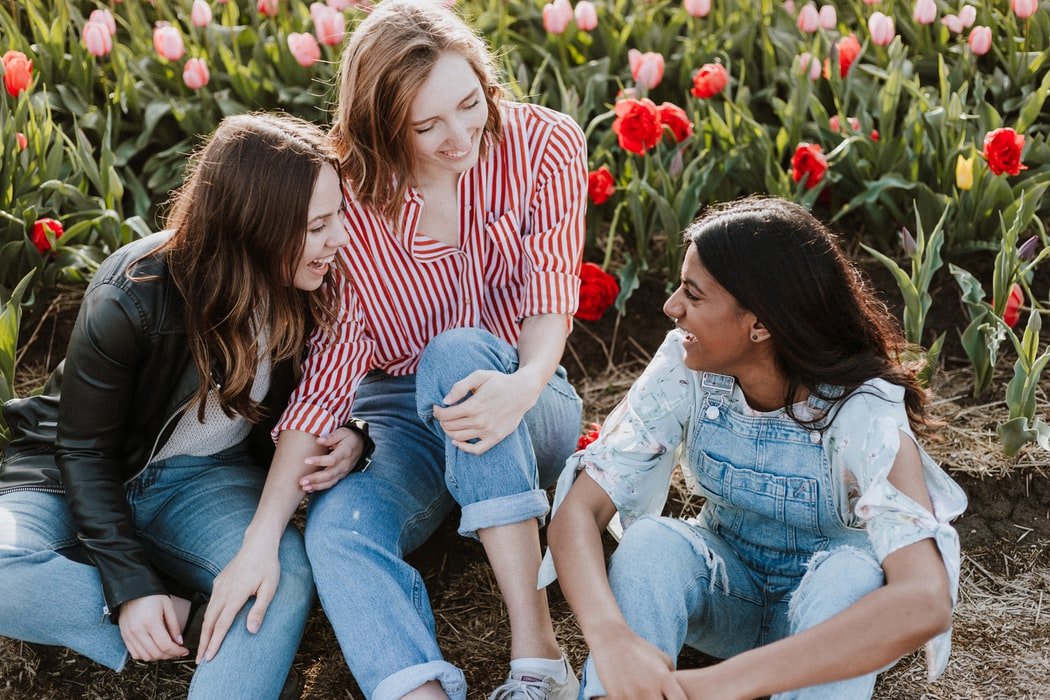Overcoming Social Anxiety: Tools to Feel Confident in New Situations
/Walking into a room full of new people can feel overwhelming. Your palms sweat, your heart races, and suddenly every word you planned to say seems to vanish. Whether it’s attending a networking event, joining a class, or even showing up to a party, social anxiety can make new situations feel impossible.
If this sounds familiar, you’re not alone. Social anxiety is one of the most common struggles young adults face. The good news? Confidence in social situations isn’t about changing who you are—it’s about learning tools to manage nerves and practicing strategies that help you feel more at ease.
Why Social Anxiety Shows Up
At its core, social anxiety is a fear of judgment. The brain goes into “what if” mode: What if I say something awkward? What if they don’t like me? What if I embarrass myself? These thoughts trigger physical symptoms like blushing, sweating, or a racing heartbeat.
It’s important to remember that these reactions are normal—your brain is trying to protect you from potential rejection. But when that protective instinct goes into overdrive, it keeps you from experiencing meaningful connections.
Reframing Social Anxiety
One of the first steps to overcoming social anxiety is shifting your perspective. Instead of viewing new situations as a test you might fail, try to see them as opportunities to practice. Every conversation, no matter how short or awkward, is a chance to strengthen your skills.
Think of it this way: confidence is not the absence of nerves, it’s the ability to keep moving forward with the nerves.
Practical Strategies to Ease Anxiety
Here are research-backed and therapist-approved strategies you can start using right away to feel more confident in social situations:
1. Prepare Conversation Starters
Walking into a situation with a few ideas in your pocket reduces the pressure of “What do I say?” Try:
“What brought you here today?”
“Have you been to this event before?”
“I love your jacket—where did you get it?”
Simple, genuine questions show interest and invite conversation.
2. Practice Exposure Gradually
Confidence grows with repetition. Start small—say hello to a cashier, make small talk with a classmate, or introduce yourself to a neighbor. Over time, these mini interactions build comfort so that bigger events feel less intimidating.
3. Use Grounding Techniques
Anxiety often lives in the body. Before entering a room, try:
Taking three slow, deep breaths.
Pressing your feet firmly into the ground and noticing the support beneath you.
Using a calming phrase, like “I am safe, and I can handle this.”
Grounding helps regulate your nervous system so your body feels calmer, even if your mind is racing.
4. Focus Outward, Not Inward
When you’re anxious, it’s easy to focus on how you’re coming across. Instead, shift attention outward: listen closely, notice details about the environment, and stay curious about the person you’re talking to. This reduces self-consciousness and makes conversations flow more naturally.
5. Challenge Negative Thoughts
Anxiety thrives on “what if” thinking. When those thoughts pop up, ask yourself:
Is this thought fact or fear?
What’s the best-case scenario?
Have I gotten through this before?
Often, reminding yourself of past successes helps you see that your fears are less realistic than they feel.
6. Bring a Buddy (When Possible)
If you’re attending an event, going with a friend can ease nerves. They can introduce you to others, help start conversations, and provide a sense of safety. Over time, you’ll build enough confidence to attend events solo when needed.
7. Celebrate Small Wins
Did you say hello? Start a conversation? Stay at the event longer than last time? Those are wins worth celebrating. Progress is built through small, consistent steps—not overnight transformation.
Social Confidence at Work and School
For young adults, social anxiety often shows up in professional and academic settings. Speaking up in meetings, introducing yourself to professors, or mingling at work events can feel daunting.
Here are some ways to reduce stress in these environments:
Prepare ahead. Write down one or two points you’d like to share in a meeting or class.
Arrive early. Walking into a half-empty room feels easier than entering a full one.
Pair up. Find one familiar face before tackling a larger group.
Over time, these strategies help you feel more at home in professional and academic spaces.
You Don’t Have to Do It Alone
While strategies are powerful, practicing them consistently is what creates lasting change. And practice is much easier in supportive, structured environments. That’s where social skills groups come in—they provide a safe place to learn, practice, and grow with others who understand the same challenges.
Join Our Young Adult Social Skills Group
At Serene Mind Counseling + Evaluations, we offer a Young Adult Social Skills Group (ages 18+) designed to help you build confidence and connection.
Starts: Wednesday October 1st 2025 at 6:00 PM
Where: Tampa office location
Focus: Tools for managing social anxiety, practicing small talk, improving workplace and school communication, and developing real friendships
How to sign up: Email hello@serenemindpsych.com to reserve your spot
This group is a safe, supportive environment where you can practice strategies like grounding, role-playing conversations, and setting goals with guidance from a therapist and encouragement from peers.
Social anxiety doesn’t have to hold you back from new opportunities, friendships, or growth. By preparing ahead, practicing gradually, and shifting focus from inward worry to outward curiosity, you can reduce nerves and increase confidence.
Every step you take—whether it’s saying hello to a stranger, attending an event, or signing up for a social skills group—brings you closer to building the connections you want and deserve.
Remember: confidence isn’t about never feeling anxious. It’s about trusting yourself enough to show up anyway.














